Surfing the OpenSea of Blockchain Games and Digital Assets [Interview with Devin Finzer]
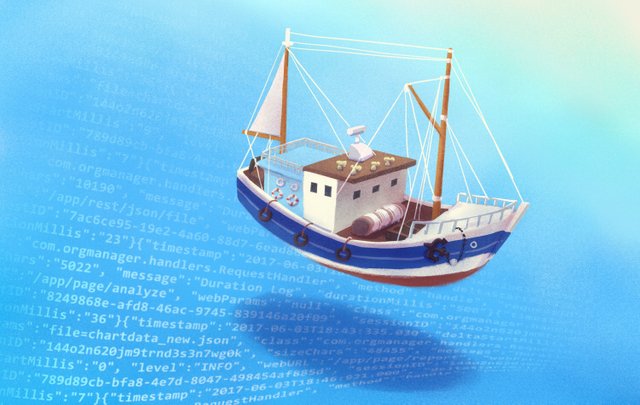
A Voyage for a New Type of Digital Value
One of the most exciting aspects of a decentralized creative world are the new layers of communities and experiences that can be built surrounding crypto-products. Blockchain resources open the door for marketplaces, games, social networks, community platforms, and so many more that help build out ecosystems for those innovations in a way centralized developments rarely allow.
Today, we have a special guest who has directly nurtured that exact characteristic of the crypto community. Devin Finzer is a co-founder of OpenSea, a digital marketplace that hosts all manner of digital blockchain assets, focusing on the growth and diversity of ERC721s. We’ve covered a number of the prominent and promising NFTs (non-fungible tokens) through the magazine - CryptoKitties, Axie Infinity, EverDragons - and OpenSea is already poised as the main venue to explore the asset landscape in its entirety.

The Creative Crypto (CC): Welcome to The Creative Crypto Devin! Tell us about your background and how you got into the blockchain space.
My co-founder and I have worked in tech our whole careers and we studied computer science. I first worked at Pinterest back in 2013 and stayed there for a couple years before leaving to do a personal finance startup that was later acquired. Fast forward to around August last year, my co-founder and I were starting to get interested in the technical side of crypto. We were both really excited about CryptoKitties as the first application that was able to capture the attention of the mainstream market by creating something that was fun, engaging, and also doing a lot of work to onboard users into these decentralized technologies.
We were interested in what the ecosystem was going to look like and when we joined these early-adopter communities, it was exciting to be able to create a more generic marketplace around exchanging, buying, or selling any ERC721 asset. That was something that never really existed in a world where each game was siloed and in a centralized ecosystem.
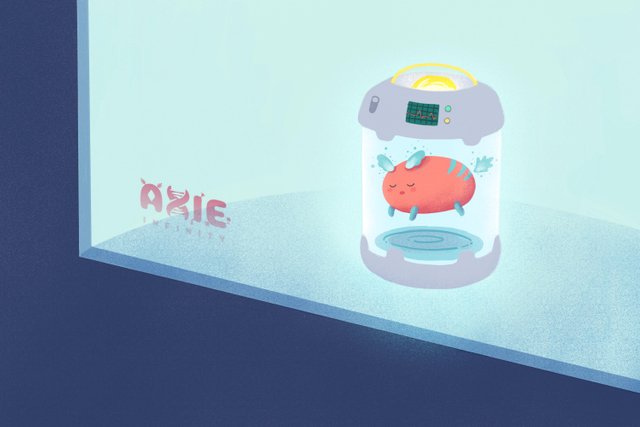
CC: What has the process been like, and when did you launch the website itself?
We technically launched our beta around December, and it gradually became less of a beta over time as we saw interest and integration from these communities. I don’t know if you follow the CryptoCelebrities game, but there are all these games that have very simplistic mechanics for buying and selling, and then there were also some games that didn’t have any way to buy and sell assets, but were still compliant with ERC721. That was the most exciting piece of it, when new games would launch and they used OpenSea to buy and sell on a completely different site than the original platform. So the website started as a beta, but it grew out of the beta just because it was starting to serve a useful function for a lot of these games.
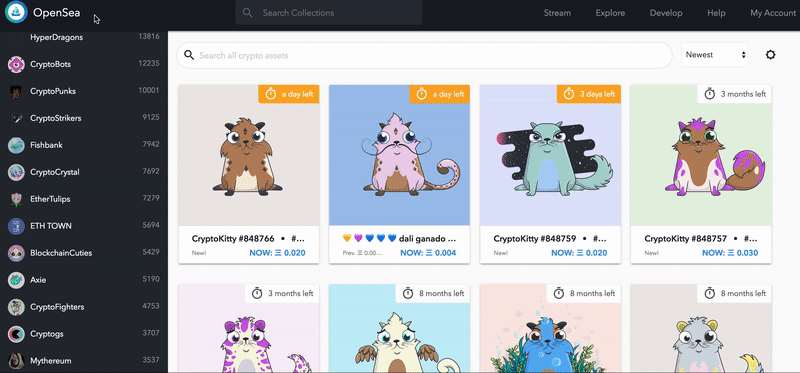
CC: So how do you see the OpenSea platform being situated in this landscape as you see more and more ERC721s and more protocols coming out on the Ethereum blockchain, and even other blockchains now?
The way we characterize the ecosystem as a whole is it is still in an early adoption phase and the challenge for us all is how do we cross the chasm into the mainstream mindset. So we need more frictionless user experiences and scalable technologies to onboard new use cases. Also, I think what OpenSea does is provide the strongest liquidity pool for all of these assets in a decentralized, trustless way.
Part of that strategy going forward is to provide a whole set of tools to developers who want some liquidity for their items. When a new game launches, they should be able to just plug into OpenSea and have people buy and sell their assets. But if they also want to create their own marketplace and personalized user interface, then they can do that using our lower level SDKs to still have a user experience that feels native to that particular game.
Going forward, the way we see ourselves being the exciting marketplace in this space and also providing the best features to users. One of the things we did in the last few weeks is making the orders off-chain. When you want to bid on an item, most sites require you to pay gas and have a transaction to do that, but we’re actually working to have settlement orders live off-chain, which also means that items don’t have to be escrowed in a smart contract.
CC: When you look at the developing supply of different types of visual assets or ERC721s, are there any particular ones that you are excited about? Do you have some favorites? Where do you think the landscape is going and what is your team looking forward to?
Yeah, personally I am really excited about games that build second-layer experiences on top of existing games. I actually follow KittyRace, where there is basically a way to race two CryptoKitties against each other. And then there are KittyHats, which allowed you to accessorize the CryptoKitties. These are very simple use cases, but I think it’s very interesting to be able to provide utility to an existing community by building another experience on top of assets and perhaps incorporate new ones. We’ve seen other kinds of simple versions of that where you can trade in one of your CryptoKitties and get a trading card. A couple of teams do that now, and it’s very interesting because it’s an immediate way to target a group of users and an immediate way to add value to an asset.
CC: I wonder if that scarcity model becomes troubling when there’s so many types of these assets out there. On your own platform, there are close to 1 million CryptoKitties on there, and the list just gets longer and longer with different types of assets with Chibi Knights, CrpytoStrikers, etc. How is your team planning on dealing with the supply of so many when that number increases to the 100s, or 1000s of distinct types?
You have to consider what the value is on an asset. For example, after CryptoKitties launched, you had 20 other competitors. Some of them added legitimate game mechanics and some were pretty much the same exact thing. So you can create as many items as you want on OpenSea, and the list will get longer. Our role will be to provide the best filtering mechanisms.
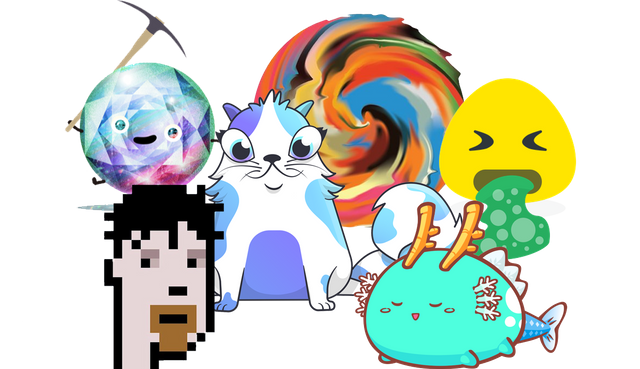
We certainly will not be able to display all of the asset types that exists in our sidebar, which is kind of what we do right now. There will be a discovery problem, but I think ultimately that this will be a very solvable problem in the same way that there are billions of images on the internet. There’s going to be a difference in quality between certain assets and others, and I think what’s interesting about this space, that the excitement of a particular item is very consensus-driven. When CrpytoKitties launched, it had a certain amount of value that was driven by hype. But now, you have KittyRace, you have KittyHats, your CryptoKitties will be viewable in Decentraland, you have OpenSea supporting CryptoKitties, you have other marketplaces that support CryptoKitties, and so on. Suddenly, this thing that started off as one smart contract has taken on a life of its own, where one day you’ll have loans that are collateralized in CryptoKitties.
CC: That’s a great point, having an infinitely growing supply of paintings doesn’t make one Van Gogh any less valuable. In fact, it makes it more valuable due to the awareness of painting as a craft, which leads me to this second question - Do you see your platform playing a more mediating role between the general public and this growing supply of assets, tokens, and systems? I’d imagine that at some point some of these tokens will go out of fashion, some of them just won’t be used that much anymore, the core team might leave the project, and so forth. I’m wondering what you guys are thinking of in terms of the future, or has it already happened?
As a consumer startup, we’re always thinking about what is the what the user wants. If there’s a demand for these antique ones that go out of fashion, you can certainly cash in the images from our site and if that’s valuable to users, then we’ll display it. If the users don’t want to see these sites that are dead, then we’ll hide it.
What’s really fascinating is because of this ownership, a ‘deceased’ platform like CryptoCelebrities can be revived with additional smart contracts. No one wanted to buy the celebrities that someone had spent a lot Ether on, but now there are these celebrity holders and someone came along and said, “I’m going to build a celebrity-breeding contract”, so that these assets have further utility.
There are two pieces to your question, where #1 is “What happens to these legacy items?” I think it’s up to the users, and sometimes these assets will be used for something that exists completely outside its original intention. And #2 is the “discovery problem,” which I think is starting to become a challenge, where the developers of the applications are testing new ways to get their items discovered by larger audiences. I believe OpenSea plays a role in that because we have a good brand and viewership of people that play decentralized games.
CC: Are there any other functionalities to the site or anything in the pipeline, anything you’re particularly proud of?
One thing we’re really anticipating in a couple of weeks is the release of the SDK which we will see as an opportunity for high level symbiosis between developers, new non-fungible asset applications, and OpenSea.
The way that we’ve structured it is if you use the SDK, you get access to the OpenSea infrastructure and you can set secondary fees on exchanges of your items. They don’t have to rebuild all of the marketplace, which is still relatively difficult to build in this sort of ecosystem in a user friendly way. #2 is you get to benefit from and be featured on the OpenSea platform. #3 is getting that benefit from any of the secondary sales that happen on the platform. Our role is to align incentives and make things more seamless for new players in the space.
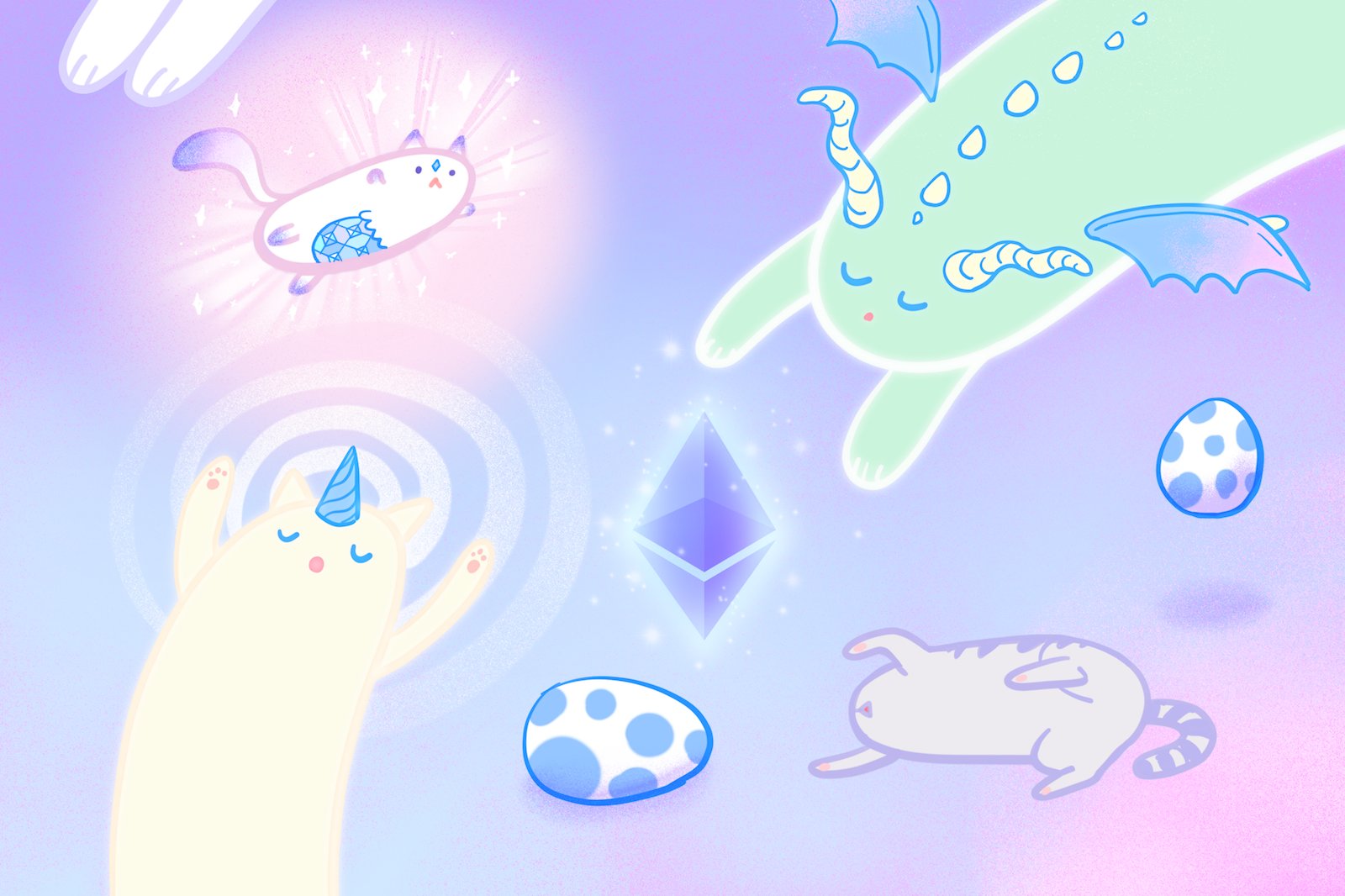
CC: It’s almost as if you’re the Binance of these digital assets, more of an exchange. These days, Binance is involved in a lot more social activities. They have Binance Labs and they do more promotional and educational activities. Do you guys see yourselves also expanding towards that route, maybe helping companies develop, or doing collaborations with your own native tokens and other kinds of more social-oriented activities?
We definitely want to collaborate very closely with new projects. We did an “OpenSea Studios”, where we launched a beta version of one of the ideas, Ethmoji. That was an OpenSea project, and we’re actually really excited about that one. We love to work very closely with game developers. We’re also very in touch with the customer, and we know what the customer looks like at this moment and time, which can change. We know that people were excited about trying these games, and we know how to show them what’s been done, what’s novel and new, and what people will get amped about.
Platform Name: OpenSea
Website: https://opensea.io/
Twitter: https://twitter.com/projectopensea
Medium: https://medium.com/@opensea
Discord Chanel: https://discordapp.com/invite/ga8EJbv

Posted from my blog with SteemPress : https://thecreativecrypto.com/surfing-the-opensea-of-blockchain-games-and-digital-assets-interview-with-devin-finzer/
That's really amazing! Thank you for sharing all those projects :D
Great! Interesting move @creativecrypto
Great interview! It is so exciting to see all the new ways to fund art in the future. There is a new developer listed on Opensea called Makersplace; where artists can sell their work as digital assets. Just think of the fountain of art that could overflow if people invested in artists work instead of joke tokens.